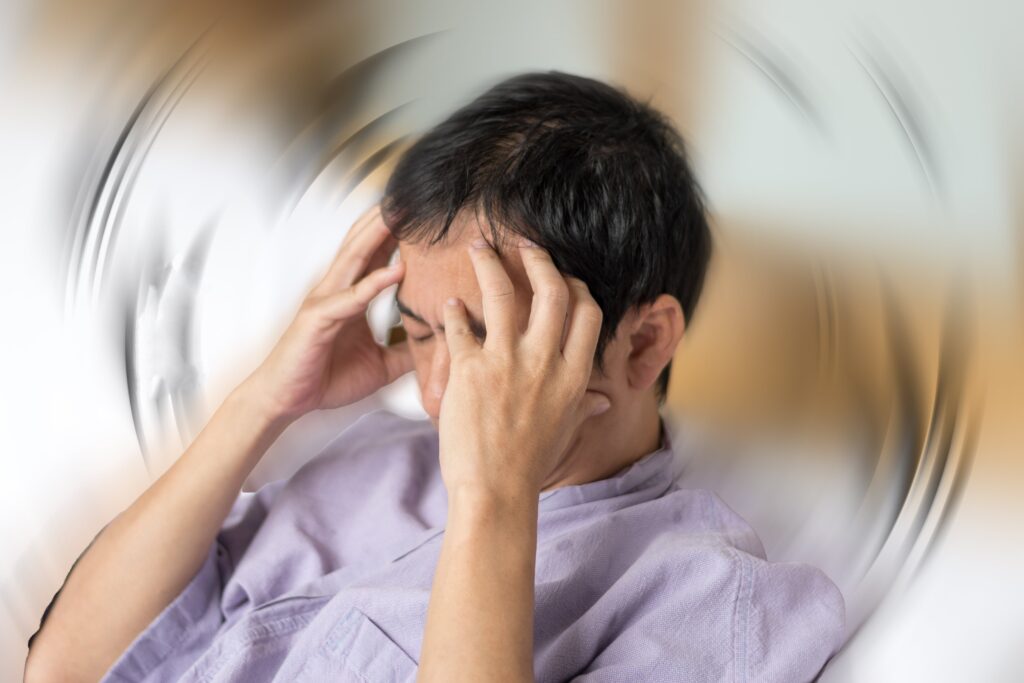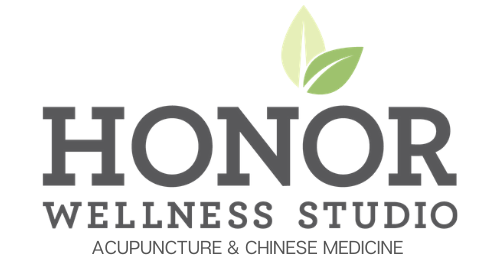
What is Vertigo?
Vertigo is a type of dizziness, in which you experience a sensation that your surroundings are moving or spinning. Vertigo may be caused by different factors (like migraines or head injuries) and may last for different durations depending on the cause. However, most people with vertigo experience intense but brief episodes of symptoms. Read on to find out more about vertigo and how Chinese Medicine can treat it.
Types of Vertigo:
There are two main types of vertigo. The first type (peripheral vertigo) occurs when there is a problem in your inner ear or vestibular nerve. The vestibular nerve is the nerve that sends information about your position and movement to your brain. The second type of vertigo (central vertigo) occurs due to brain problems such as strokes, migraines, or traumatic brain injuries.
Vertigo Symptoms:
If you experience vertigo, you will probably have the sensation that the world around you is spinning, although in reality it’s not. This sensation sometimes worsens when you move your head. Other symptoms you may experience with vertigo include:
- Nausea or vomiting
- Sweating
- Headache
- Ringing in your ears
- Loss of balance
What Causes Vertigo?
Many factors can cause vertigo, including infections, migraines, medications, and Meniere’s disease. Even stress can worsen vertigo symptoms. However, the most common cause of vertigo is Benign Paroxysmal Positional Vertigo (BPPV). BPPV occurs due to a rapid change in head movement, such as a blow to the head, and causes brief but intense spinning sensations.
Vertigo Treatment:
You can treat vertigo in many ways, depending on the cause of your condition. Therapy, exercises, medications, and in some cases surgery may all be possible treatment options. Vertigo treatment typically aims to address the underlying cause of your symptoms. For example, if your symptoms are caused by a brain tumour or head injury, surgery may be a possible treatment for you.
If you have BPPV, vestibular rehabilitation therapy may help. This involves practising certain postures such as the canalith repositioning manoeuvre with the help of a therapist. These manoeuvres may help to displace small particles in the inner ear that can cause BPPV. Your healthcare professional may also suggest exercises for you to do at home, like balance training and gaze stabilisation.
There are also medications like Meclizine (an antihistamine) that can help treat vertigo. However, medications always come with the risk of side effects. Meclizine can cause confusion and even loss of memory in older adults.
How Can Chinese Medicine Treat Vertigo?
In Chinese Medicine, symptoms such as vertigo are seen as signs of underlying imbalances within your body. These imbalances are often related to the flow of Qi (energy) or blood through your body, or even imbalances in the functioning of your organs. Qualified Chinese Medicine practitioners can adjust these imbalances by prescribing specific Chinese herbs or applying techniques like acupuncture. These treatments are entirely individualised according to your unique symptoms and health circumstances.
Acupuncture in particular can be very effective at treating vertigo. In fact, researchers have found that, “Acupuncture demonstrates a significant immediate effect in reducing discomforts and VAS [Visual Analog Scale] of both dizziness and vertigo.” The great thing about acupuncture and Chinese Medicine is that they are natural and holistic treatments, and rarely present the risk of harmful side effects.
Conclusion:
Overall, vertigo is a sensation that the world is spinning around you. It can be caused by factors like head injuries, infections, migraines, and medications. Treating vertigo depends on the cause of your condition, but Chinese Medicine can be a very effective option.
References:
Chiu, C. W., Lee, T. C., Hsu, P. C., Chen, C. Y., Chang, S. C., Chiang, J. Y., & Lo, L. C. (2015). Efficacy and safety of acupuncture for dizziness and vertigo in emergency department: A pilot cohort study. BMC Complementary and Alternative Medicine, 15, 173. https://doi.org/10.1186/s12906-015-0704-6
Krause, L. & Robinson, D. (2021, November 30). Vertigo: Symptoms, Causes, Treatment, and More. Healthline. https://www.healthline.com/health/vertigo
